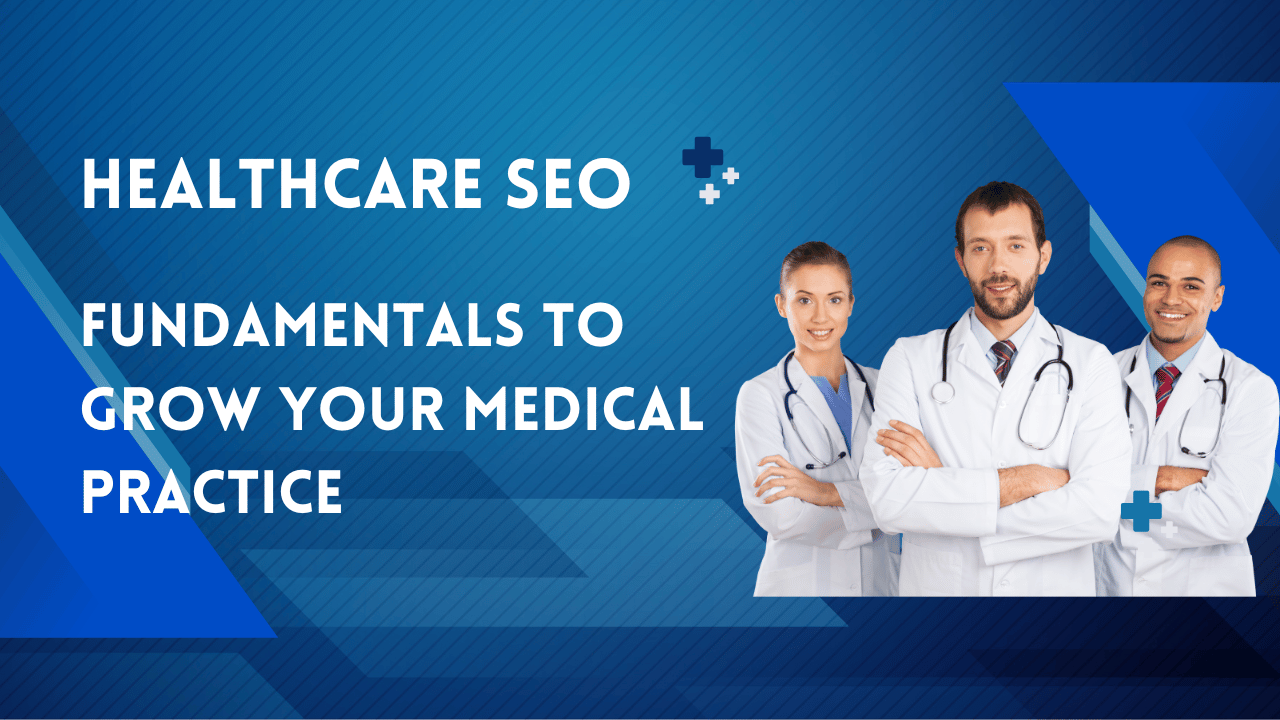SEO
Healthcare SEO Fundamentals To Grow Your Medical Practice
Introduction
In today’s digital age, having a strong online presence is essential for any medical practice. With the increasing competition in the healthcare industry, it is crucial to implement effective SEO strategies to grow your medical practice and attract more patients. This article will guide you through the healthcare SEO fundamentals that will help you improve your search engine rankings, drive organic traffic to your website, and ultimately boost your medical practice’s success.
Understanding the Importance of Healthcare SEO
In a world where people turn to search engines for all their needs, including healthcare services, having a well-optimized website is vital. Healthcare SEO (Search Engine Optimization) focuses on improving your website’s visibility in search engine results pages (SERPs) by targeting relevant keywords, optimizing your content, and enhancing the overall user experience. By implementing healthcare SEO strategies, you can increase your website’s organic traffic, attract more potential patients, and establish your medical practice as a trusted authority in the industry.
The Role of Keywords in Healthcare SEO
Keywords play a crucial role in healthcare SEO as they help search engines understand the relevance of your content to user queries. By conducting thorough keyword research, you can identify the terms and phrases that potential patients are using to search for healthcare services. Incorporating these keywords naturally throughout your website’s content, including headings, subheadings, and body text, can significantly improve your search engine rankings and increase the likelihood of your website appearing in relevant search results.
Utilizing LSI Keywords for Better Optimization
LSI (Latent Semantic Indexing) keywords are terms that are closely related to your primary keyword. Using LSI keywords in your content can help search engines understand the context and relevance of your website. For example, if your primary keyword is “medical practice,” LSI keywords could include “healthcare clinic,” “doctor’s office,” or “health center.” Incorporating these LSI keywords throughout your content can enhance the overall optimization and improve your website’s visibility in search results.
On-Page Optimization for Healthcare Websites
On-page optimization refers to the various techniques used to optimize individual web pages to improve search engine rankings. It involves optimizing both the content and the HTML source code of your web pages. Here are some fundamental on-page optimization strategies for healthcare websites:
1. Compelling Page Titles
Your page titles should be concise, descriptive, and contain relevant keywords. They are crucial for both SEO and user experience. A well-crafted page title can entice users to click on your website in search results and provide search engines with a clear understanding of your page’s content.
2. Engaging Meta Descriptions
Meta descriptions are short snippets that appear below the page title in search results. They provide a concise summary of your page’s content and should include the primary keyword. Writing compelling meta descriptions can significantly impact your click-through rates and encourage users to visit your website.
3. Structured Headings and Subheadings
Using structured headings and subheadings, such as H1, H2, H3 tags, helps search engines understand the hierarchy and organization of your content. Including relevant keywords in these headings and subheadings can further enhance your website’s optimization.
4. High-Quality Content
Producing high-quality, informative, and engaging content is crucial for healthcare SEO. Your content should address the needs and concerns of your target audience, provide valuable information, and establish your medical practice as an authority in the field. Incorporate relevant keywords naturally throughout your content while maintaining readability and coherence.
5. Optimized Images and Alt Text
Including images in your web pages can enhance user engagement and improve the overall user experience. However, it is essential to optimize these images by compressing their file sizes and adding descriptive alt text. Alt text helps search engines understand the content of your images, contributing to better SEO.
6. Mobile-Friendly Design
With the increasing use of mobile devices, having a mobile-friendly website is essential. Ensure that your website is responsive and optimized for different screen sizes. A mobile-friendly design not only improves user experience but also contributes to higher search engine rankings.
Frequently Asked Questions (FAQs)
1. What are the key benefits of implementing healthcare SEO?
Implementing healthcare SEO can provide several benefits to your medical practice. It can increase your website’s visibility in search results, drive organic traffic, attract more potential patients, establish your practice as a trusted authority, and ultimately lead to the growth of your medical practice.
2. How long does it take to see results from healthcare SEO efforts?
The time it takes to see results from healthcare SEO efforts can vary depending on various factors, such as the competitiveness of your target keywords, the quality of your content, and the overall optimization of your website. Generally, it takes several months to start seeing significant improvements in search engine rankings and organic traffic.
3. Should I hire a professional SEO agency for healthcare SEO?
While it is possible to implement healthcare SEO strategies on your own, hiring a professional SEO agency can provide numerous benefits. SEO experts have the knowledge, experience, and resources to develop and execute comprehensive SEO strategies tailored to your medical practice’s specific needs, saving you time and ensuring optimal results.
4. How often should I update my website’s content for better healthcare SEO?
Regularly updating your website’s content can positively impact your healthcare SEO efforts. Adding fresh, relevant content, such as blog posts, articles, or educational resources, signals to search engines that your website is active and authoritative. Aim to update your content consistently, whether it’s on a weekly or monthly basis, to keep your website optimized and engaging for both users and search engines.
5. What are some off-page SEO techniques for healthcare websites?
Off-page SEO techniques focus on improving your website’s visibility and authority through external factors. Some effective off-page SEO techniques for healthcare websites include building high-quality backlinks from authoritative websites, engaging in social media marketing, online reputation management, and guest blogging on relevant industry websites.
6. Can healthcare SEO help attract local patients to my medical practice?
Absolutely! Local SEO techniques can help you attract local patients to your medical practice. By targeting location-specific keywords, optimizing your Google My Business listing, and getting positive reviews from local patients, you can improve your local search rankings and attract patients in your area.
Conclusion
Implementing effective healthcare SEO fundamentals is crucial for growing your medical practice in today’s digital landscape. By understanding the importance of healthcare SEO, utilizing relevant keywords, optimizing your website’s on-page elements, and providing valuable content, you can improve your search engine rankings, attract more patients, and establish your practice as a trusted authority in the healthcare industry. Remember to stay up-to-date with the latest SEO trends and adapt your strategies accordingly to stay ahead of the competition and achieve long-term success.

